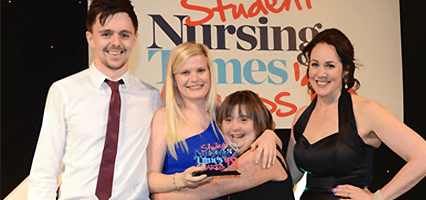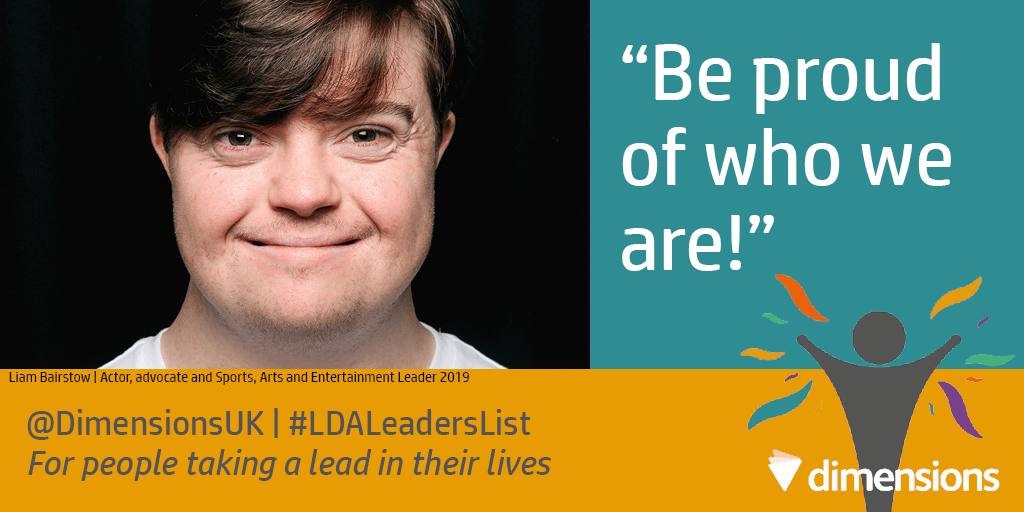Inclusion isn't a science, it's an opportunity
Emily is an outstanding young woman with multiple talents, who is making a large difference to the School of Health Sciences at the University of Nottingham working as a sessional member of staff.
Not only is Emily the only woman with Down’s syndrome to be published in the British Medical Journal, she’s also the first person with expert experience to be a judge for the Nursing Times, she is involved in classroom teaching, conference presentations and she has jointly supervised a number of student dissertations.
Acting as a judge on the Nursing Times learning disability student nurse panel: Emily was involved in shortlisting the entries and interviewing candidates with the rest of the panel.
On the day of the award ceremony, in front of an audience of over 1000, Emily took to the stage and announced the winner; something even the most seasoned of academics would have found daunting, Emily took in her stride.
Through the work she is doing in Admissions within the Faculty of Medicine and Health Sciences, Emily’s insights have influenced practice.

In the School of Health Sciences they have a strong ethos of learning from true narrative; Emily has embodied that by sharing her story and supporting students to use that story to complete dissertations.
Emily has a quiet but determined way in a classroom whether she is facing a seminar group of 20 or a lecture hall of 700 she is assured and never fails to deliver and bring humour to the session.
Emily also uses her instinctive gentle teaching skill to set hearts and minds at rest, never more evident than this autumn when talking to new grandparents at Warwick Castle about living with Down’s syndrome.
Aside from the classrooms and lecture halls, Emily is an active member of the recruitment and selection team, interviewing new applicants for places on medicine and nursing courses.
She has been involved in developing the selection process, being an expert advisor on developing interview questions to understand applicants’ perspectives and knowledge of Learning Disability.

Through her work Emily has helped the School of Health Sciences to progress and deliver on their values based recruitment processes.
Emily isn’t just a role model and advocate for learning disability, she is a trusted colleague and valued member of the interview panels for all fields of practice and physiotherapy; often picking up on subtle nuances of the language of observable communication that others miss.











